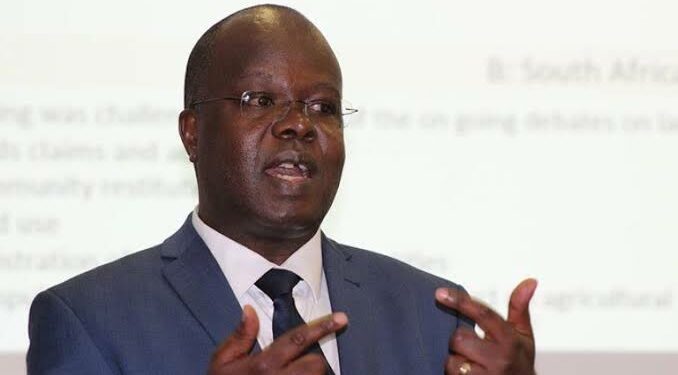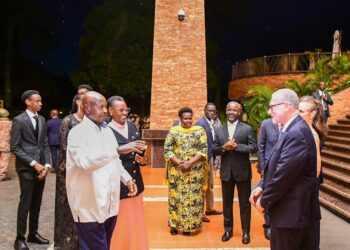Justice Dr. Douglas Karekona Singiza of the High Court has strongly defended his judicial independence, condemning personal attacks and online threats that surfaced during the high-profile habeas corpus hearing of Rtd. Col. Dr. Kizza Besigye and Haji Obeid Lutale.
In his ruling, which dismissed the application for their release, Justice Singiza stated, “I am not a Nazi judge. Courts in this country execute their judicial functions without fear or favor based on the law and the evidence.”
His remarks came after a wave of criticism and social media outrage, including satirical cartoons that allegedly depicted him as a Nazi sympathizer, following his decision to send sickly Dr Besigye back to Luzira Maximum prison. The judge lamented that while fair criticism is acceptable, personal attacks and intimidation threaten judicial independence.
Dr. Besigye and Lutale were arrested on November 16, 2024, in Nairobi, Kenya, and forcibly transferred to Uganda, where they were detained at Makindye Military Barracks before being charged before the General Court Martial (GCM). They faced charges related to security offenses, treachery, and illegal possession of firearms.
However, on January 31, 2025, the Supreme Court ruled that the trial of civilians in military courts was unconstitutional. This prompted Besigye’s legal team, led by Lord Mayor Elias Lukwago, to file a habeas corpus application, arguing that their continued detention was unlawful.
However, the state represented by Senior State Attorney Johnson Natuhweera and State Attorney Jacky Amusugut defended the continued detention, arguing that the Supreme Court ruling did not order immediate release but rather a transfer of cases from military to civilian courts. They cited administrative steps being taken to move the case to civilian jurisdiction.
Justice Singiza agreed with the state’s position, ruling that since the applicants were formally charged in Nakawa Chief Magistrate’s Court on February 21, 2025, the habeas corpus application was moot. He dismissed the application without orders as to the costs
In the same ruling, Justice Singiza revealed his discomfort with the level of public outrage and personal attacks directed at him. Justice Singiza revealed that he received online threats and accusations of being a government pawn, with some critics comparing him to a Nazi judge.
“In many jurisdictions of the world, any depiction of an individual as a Nazi apologist is prima facie evidence of criminal prejudice,” he stated.
He called for respect toward judicial officers, emphasizing that courts operate independently and must not be influenced by public opinion or political pressure.
Justice Singiza’s strong defense of judicial independence has sparked discussions on the pressures facing Ugandan judges in politically sensitive cases. His ruling, though legally grounded, may further fuel debates about the intersection of law and politics in Uganda’s judiciary.
Meanwhile, for now, Dr. Besigye and Haji Lutale’s fate lies in the hands of the civilian courts, while the controversy surrounding the case and the judge’s remarks continues to unfold.
Do you have a story in your community or an opinion to share with us: Email us at editorial@watchdoguganda.com













